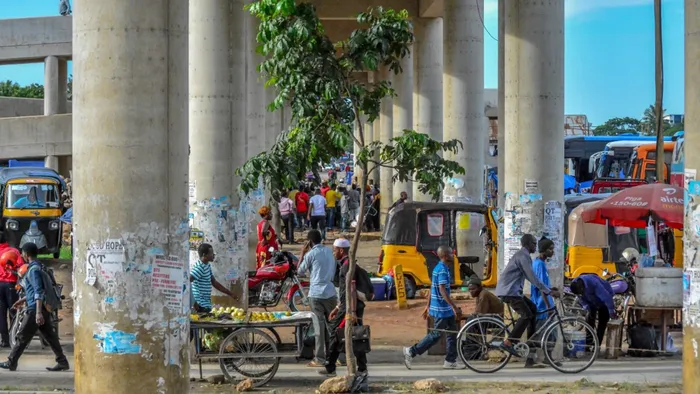Evolution of transport in Africa

Picture: ITDP-Africa - Experts are finding innovative ways to transform modes of transportation in Dar es Salaam, Tanzania.
By Chad Williams
Africa, with its growing youth population, is probably the continent most positioned to take advantage of a slew of new Artificial Intelligence (AI) technology aimed at advancing public transport.
The term Digital Transportation refers to advanced applications which seek to provide innovative services relating to different transport modes and traffic management.
As the continent continues to grow, a reliable and safe public transport system is required to get travellers from one place to another as well as to tackle the congestion in many cities.
It is a common fact that a seamless public transport system is the backbone of any economy.
Experts have over the years sought to establish organisations such as Digital Transport for Africa (DT4A) whose main focus is transportation.
For instance, DT4A represents a large, diverse network of city governments, residents, universities, civic technology companies and collectives as well as international development partners who have forged partnerships to build digital systems.
DT4A believes that digital technologies are a tremendous opportunity to address public transport challenges on the continent.
Analysts have also pointed out that crucial public transport data is missing.
This is the data that could be used to plan an integrated public transport system and design passenger information systems.
On the other hand, the World Bank states that as a leader in payment innovation, Africa’s experience in reforming a tough and complicated public transport sector showcases how other parts of the world can leverage these digital technologies to leapfrog in their development.
The journey to complete reform still beckons
In Africa, public transport vehicles such as minibuses are often owned by individuals and operate on a cash basis meaning that they fall under the radar of city authorities.
“They don’t want to be visible on a digital platform,” says Dr Herrie Schalekamp from the University of Cape Town, who has been looking into transport in Africa over the last few years.
According to Schalekamp, Lagos in Nigeria is one of the success stories where digital transport innovation is concerned.
“Getting hold of small-denomination currency is difficult and there were always rows with bus drivers, so it’s in operators’ interests to have a digital system,” adds Schalekamp.
In West Africa, a new pre-payment platform known as Gona was established to enable cashless payments on a fleet of minibuses.
Commuters simply scan a QR code for the vehicle they want to travel on.
So whether be it a Tuk-Tuk, train, minibus, scooter, rickshaw or donkey cart - the evolution of transport is growing in Africa.
Therefore, key role players such as communities, government and transport owners among others need to regroup and form solid partnerships in order to advance transport for the benefit of their economies.
Williams is a multimedia journalist at the African News Agency (ANA). He reports on current affairs in Africa.
This article is original to The African. To republish, see terms and conditions.